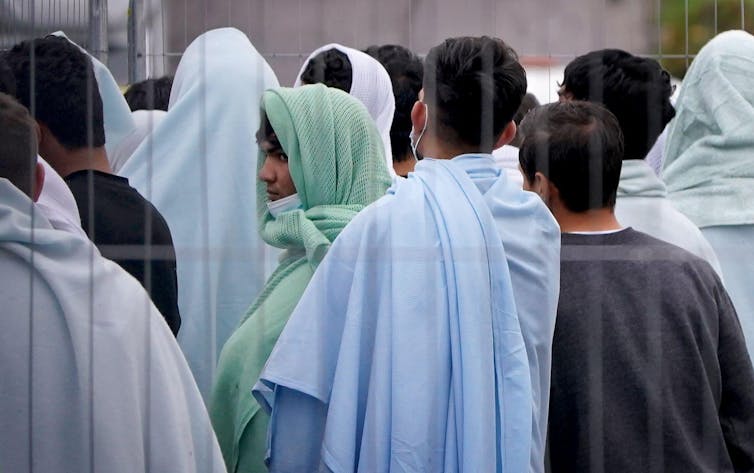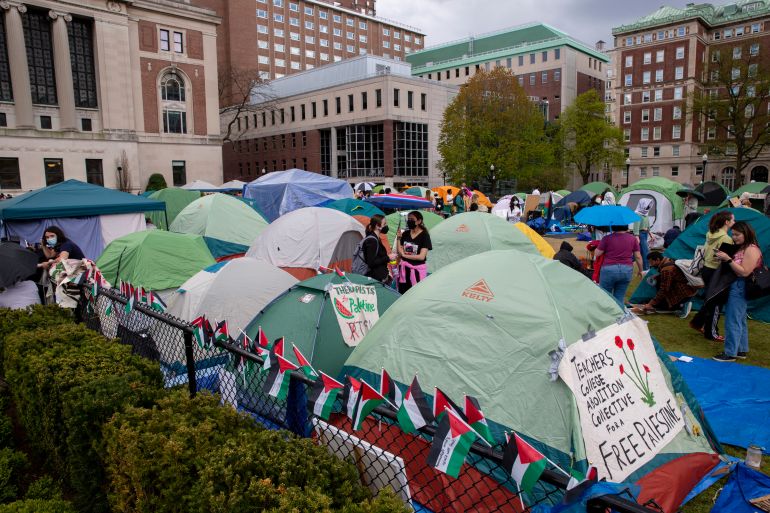Cheap Russian drones overwhelm US-made Abrams tanks, taken out of action

Ukrainian forces are withdrawing US-provided Abrams M1A1 main battle tanks from the front lines after at least five have been destroyed by cheap Russian drones, according to the AP.
A loud cheer went up amongst Ukraine’s support when the US announced in January 2023 it would deliver a battalion of Abrams tanks to Ukraine. The hope was that 31 US made tanks, which are far superior to the Russian T-72 tank that is in wide use by Russia’s forces, would be a game changer.
The Abrams has better front armour and a more powerful gun that can penetrate the Russian tanks armour. By October 2023, all 31 tanks had been successfully delivered, as confirmed by officials.
However, the evolving dynamics of warfare, particularly the proliferation of Russian surveillance and hunter-killer drones, have dramatically altered the operational landscape. It turned out that the Abrams were more vulnerable to Russian attacks than previously believed.
The Russian forces avoided head-to-head clashes between tanks that they were likely to lose and instead adopted a new tactic: attacking the Abrams with swarms of drones that targeted tanks weak points: typically the point where the turret meets the body, the rear covering of the engine and the top of the tank where the armour is thinnest.
The Armed Forces of Ukraine (AFU) played on these weaknesses in the early days of the war, using US-supplied Javelin missiles that swoop upwards before reaching their target before dropping down on the roof of the Russian tanks. As Soviet designers had chosen to store all the tank’s rounds in the turret, these would then explode and cause the Russian tanks to “pop their tops” killing everyone inside.

When hit by a US-made Javelin missile, shells stored in the turret of Russian tanks tend to explode causing the tank to "pop its top."
According to the US officials speaking to AP, the Russian drones have been very effective and led to the loss of five Abrams tanks on the battlefield, prompting a reassessment of their deployment.
One senior military official, speaking anonymously, said another problem was the Russian forces usually had plenty of warning when an Abrams tank was on the way thanks to extensive drone surveillance. "There isn't open ground that you can just drive across without fear of detection."
While Ukraine led in the use and development of drones in the first year of the war, Russia has been pouring money into its military industrial complex and has now overtaken Ukraine in terms of both the quantity and quality of drones that it is producing, as well as all its munition supplies in general.
German Defence Minister Boris Pistorius said on TV on April 25 that the heavy state investment into the military industrial complex and conversion of civilian production to military has resulted in Russia producing more arms than it needs, with the surplus heading to warehouses rather than the front line. Pistorius suggested that Russia is preparing for a long war or could be thinking about expanding the conflict to include other countries.
“Now you can be naïve and say he (President Vladimir Putin) is doing it just out of caution,” Pistorius stressed. “As a sceptical person, I would say in this case that he’s doing it because he has [other] plans…”
This investment is also altering the balance of power for tanks. Earlier this year, the Russian defence ministry announced that it had inducted over 1,500 new main battle tanks in 2023 to support its war campaign, whereas Forbes reported in December that Ukraine is down to 350, most of which are the Soviet warhorse, a modified T-72 tank.
New US materiel
The failure of the Abrams to make a difference is a costly miscalculation. The export cost of an Abrams tank can be around $10mn, while Col. Markus Reisner, an Austrian military trainer who follows the weapons being used in Ukraine, told the Euromaidan Press that the Russian suicide drones being used to destroy them can be as cheap as $500 each (a ratio of 20,000:1).
And money is increasingly an issue. US funding for Ukraine began to dry up last summer, and the US ran out of money for Ukraine completely in January. After four months of dithering, Congress finally voted through a $61bn aid package on April 20 that will allow military supplies to resume.
However, while the list of weapons to be sent to Ukraine includes Bradley APC and more Javelins, notably there is no mention of any more tanks.
The Abrams had previously been seen as “one of the world’s mightiest” battle tanks, according to Col. Reisner commenting on the effectiveness of the Russian drones. “Welcome to the 21st century — it’s unbelievable, actually,” he said of the changing nature of warfare.
The Abrams tanks have been temporarily removed from the front lines, with plans underway for the US and Ukraine to have a rethink and collaborate on adapting tactics to the evolving threat environment, according to US Joint Chiefs of Staff Chair Adm. Christopher Grady.
"When you think about the way the fight has evolved, massed armour in an environment where unmanned aerial systems are ubiquitous can be at risk," Grady said, as cited by Euromaidan Press.
The US had previously provided training to Ukrainian forces on tank operation and combined arms warfare tactics at the Grafenwoehr Army base in Germany in spring 2023. However, officials noted that since then, Ukrainian forces have not fully utilised the Abrams tanks or implemented combined arms warfare strategies effectively.
Likewise, Germany sent about five squadrons of its equally powerful Leopard main battle tanks that have been equally disappointing. At least 11 of the 21 sent have been destroyed or damaged and taken out of action, Forbes reported in December. The majority of the Leopard 2A6 tanks sent to Ukraine by Germany are no longer functioning, a senior politician for the German Greens said in January.

A leopard tank on its way to Ukraine
The discussion around the status of US weapons in Ukraine comes ahead of the April 26 Ukraine Defence Contact Group meeting, marking the coalition's two-year anniversary. It is unclear what is wrong with all the tanks, but they are notoriously difficult to maintain on the battlefield and need constant attention from mechanics and a support crew.
Now it’s the Russians turn to cheer, as fears of the US supplying game changing armament to Ukraine are fading. In an apparent mockery of US military aid to Ukraine, bakeries in Moscow have started selling chocolate cakes in the form of destroyed Abrams tanks for RUB759 ($8), Sputnik posted on its X channel.
And tanks are not the only powerful US-made weapon to have fallen off the docket for delivery to Ukraine. Ukraine is also running very low on ammunition for the Patriot air defence system that has prevented Russia from bombing Ukraine’s cities and power infrastructure for most of the last year.
Russia launched an intense barrage in January designed to run down Ukraine’s stocks of these missiles, before further intensifying the barrage in March when it appeared the tactic was working. In the last month Ukraine lost 7 GW of power generation and the country’s two biggest power plants – Trypilska that serves Kyiv and the Dnipro Hydropower plant – have been destroyed and won’t be repaired this year. Ukrainians are facing a cold and dark winter this year as a result.
Germany has sent Ukraine two more Patriot batteries and promised one more, but Patriots are also missing from the US list of new materiel on its way to Ukraine.
Berlin is leading the effort to scrounge up more Patriot missiles for Ukraine, but all the other European countries that have them (Spain, France, Poland, Romania, Italy, the Netherlands, Sweden and Greece) have refused to part with the system, afraid of undermining their own security.
The exception was Greece which promised to give one battery to Ukraine on April 24. However, Greek Prime Minister Kyriakos Mitsotakis changed his mind and announced the very next day that Athens would not send Patriots to Ukraine after all.
Amidst these developments, the US is poised to announce a new $6bn weapons contract for Ukraine, which will include Patriot air defence systems, artillery, drones, counter-drone weapons, and air-to-air missiles, potentially finalising the deal as soon as April 26, according to officials.







 Conditions at the Manston immigration short-term holding facility in Kent were deemed ‘unacceptable’ by the borders watchdog.
Conditions at the Manston immigration short-term holding facility in Kent were deemed ‘unacceptable’ by the borders watchdog. 
 Diversity advantage: the colourful Lisbon neighbourhood of Mouraria is enlivened by a range of retail entrepreneurs, including from south Asia (Mauro Rodrigues / shutterstock.com).
Diversity advantage: the colourful Lisbon neighbourhood of Mouraria is enlivened by a range of retail entrepreneurs, including from south Asia (Mauro Rodrigues / shutterstock.com).




 Students demonstrating in support of Palestinians in Gaza gather on the Plaza of the Americas at the University of Florida on Thursday, April 25, 2024, in Gainesville. Century Tower, a UF landmark, can be seen in the background. The protest was one of dozens around the nation this week that saw hundreds of students arrested. [ DIVYA KUMAR | Times ]
Students demonstrating in support of Palestinians in Gaza gather on the Plaza of the Americas at the University of Florida on Thursday, April 25, 2024, in Gainesville. Century Tower, a UF landmark, can be seen in the background. The protest was one of dozens around the nation this week that saw hundreds of students arrested. [ DIVYA KUMAR | Times ] Police officers gather near the site of a pro-Palestinian protest on the University of Florida campus on Thursday, April 25, 2024, in Gainesville. Officers took steps to ensure the protesters did not establish an encampment on the campus green known as Plaza of the Americas. [ DIVYA KUMAR | Times ]
Police officers gather near the site of a pro-Palestinian protest on the University of Florida campus on Thursday, April 25, 2024, in Gainesville. Officers took steps to ensure the protesters did not establish an encampment on the campus green known as Plaza of the Americas. [ DIVYA KUMAR | Times ]

